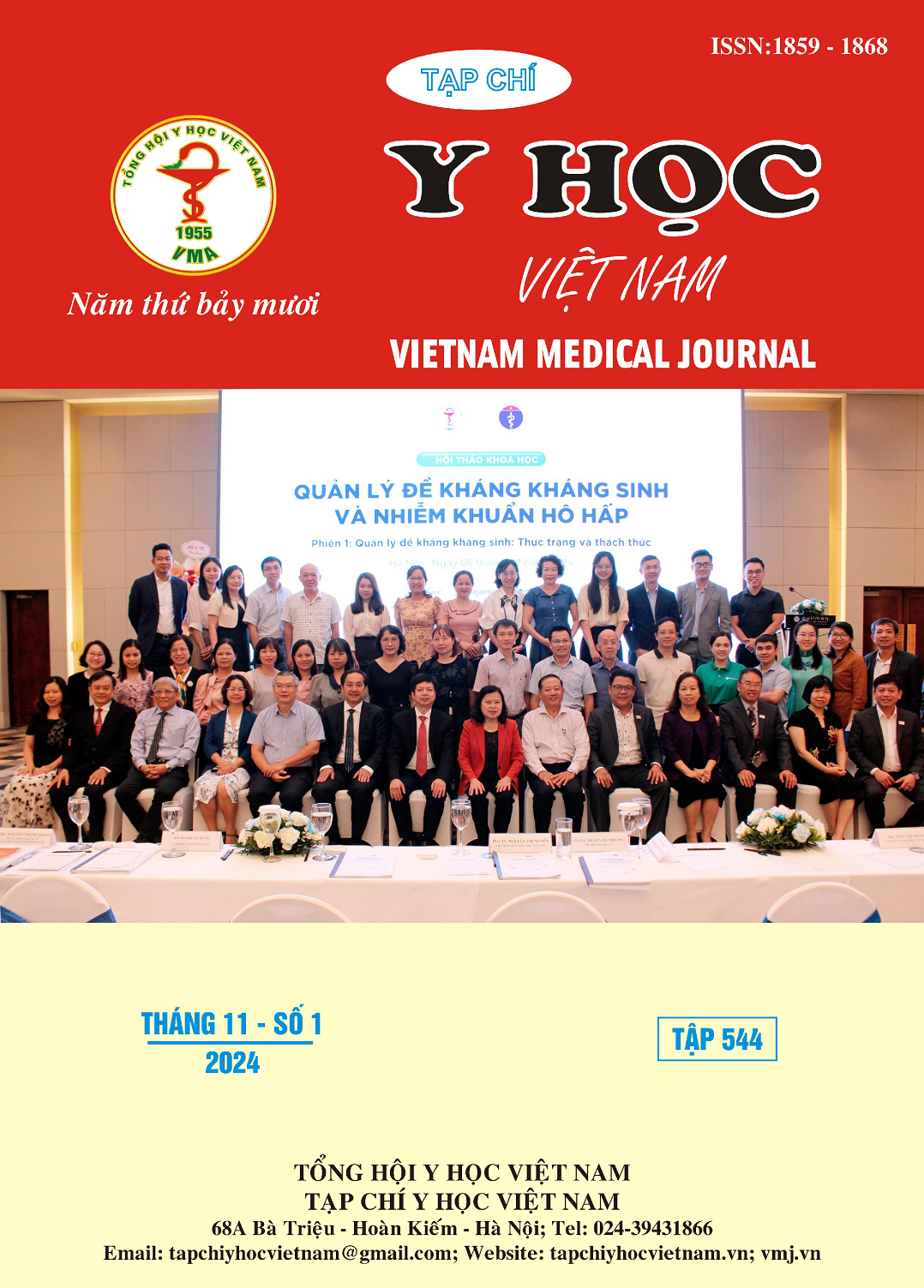SURGICAL TREATMENT RESULTS OF CHRONIC SUBDURAL HEMATOMA AT HANOI MEDICAL UNIVERSITY HOSPITAL
Main Article Content
Abstract
Objectives: Surgical treatment results of chronic subdural hematoma at hanoi medical university hospital. Methods: Cross-sectional retrospective description on 82 patients who has chronic subdural hematoma underwent surgical treatment at Hanoi University hospital. Results: The average age was 65±12 years old, the male/female ratio was 1.2/1, the cause of injury was 53.7%, and 46.3% of cases had no history of injury, the most common symptom was headache in 79.3%, hemiplegia in 42.7%, aphasia in 23.2%, decreased consciousness in 6.1%, hematoma thickness was 17.1±7.2mm and midline shift was 3.5±1.1 mm, bilateral hematoma in 30.5%, no fatal complications, all clinical symptoms were reduced, in which 5 patients with decreased consciousness before surgery all improved consciousness after surgery. Conclusion: Surgical drainage of chronic subdural hematoma is safe and effective.
Article Details
Keywords
Chronic subdural hematoma, subdural hematoma, surgical drainage of chronic subdural hematoma.
References
2. Gurelik M, Aslan A, Gurelik B, Ozum U, Karadag O, Kars HZ, 2007 A safe and effective method for treatment of chronic sub dural haematoma. Can J Neurol Sci 34:84–87
3. Ishibashi A, Yokokura Y, Adachi H: A comparative study of treatments for chronic subdural hematoma: burr hole drain age versus burr hole drainage with irrigation. Kurume Med J 58:35–39, 2011
4. Zakaraia AM, Adnan JS, Haspani MS, Naing NN, Abdullah JM, 2008, Outcome of 2 different types of operative techniques practiced for chronic subdural hematoma in Malaysia: an analysis. Surg Neurol 69:608–616
5. Nakaguchi H, Tanishima T, Yoshimasu N, 2000, Relationship be tween drainage catheter location and postoperative recurrence of chronic subdural hematoma after burrhole irrigation and closedsystem drainage. J Neurosurg 93:791–795


